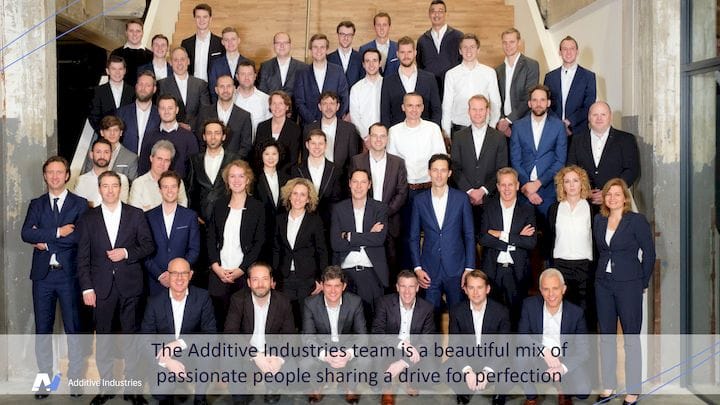![Some of the nice folks who work at Additive Industries [Source: Additive Industries]](https://fabbaloo.com/wp-content/uploads/2020/05/image-asset_img_5eb0a106a6cf5.jpg)
If you’re interested in 3D printing, it is entirely possible to join the industry without being an engineer.
While some industries are drying up, new technologies have enabled new types of roles in new industries. One of them is 3D printing, which has now begun a slow climb out of the “trough of disillusionment”, as Gartner would describe the state of affairs in the industry over the past few years.
After a catastrophic crash in interest in 2014-15, mostly due to overly excited consumers discovering they actually did not purchase a home replicator, and in fact bought themselves a less-than-fun device that was more trouble than it was worth. Their disinterest severely affected 3D printing stock prices regardless of actual company performance, and put a cloud over the industry for years.
But now things are looking much better. New applications have finally caught on with aerospace, dental, automotive, manufacturing, prototyping and professionals. These markets now drive a huge adoption curve of 3D printing worldwide. It’s less than one might expect had consumers bought in, but substantial nevertheless.
The result is booming 3D print companies, whether they be involved in producing machines themselves or in services, materials, software and more. There are plenty of jobs awaiting.
This fact is certainly of interest to those who have been laid off from companies that have recently had troubles, or those who anticipate layoffs.
But there’s a prevailing thought that you have to be an engineer to join a 3D printer company.
That’s both true and false.
It’s true because companies producing 3D printers really do need engineers to design and build the machines. But there is much more to the story of a company in the 3D printing business.
In fact, if a company were populated with ONLY engineers, I’d be concerned for its survival. Very concerned.
Businesses need many types of roles to ensure all the usual business aspects are managed. You can well imagine the need for sales, marketing, accounting and other business and administrative roles, as you would have in virtually any other company. Certainly individuals with those skills should consider applying to work at a booming 3D printer company.
But there’s another very important non-hardware engineering role that is critical to many 3D printer firms: software.
It’s easy to see the shiny 3D printer, but the software that drives it is of course invisible. But it is of as much importance to the success of the machine as the hardware itself. In fact, it may be even more important.
Software ensures the machine operates at an optimal level, including real-time operations, monitoring, 3D model preparation and more. These are complex software problems to solve, particularly in today’s world of increasing performance, where as much as possible must be squeezed out of a given hardware design.
Don’t believe me? Let’s look at an example. Additive Industries just posted a number of positions they need to fill in their burgeoning metal 3D printing business. Their list of required roles is as follows:
-
Service & Support Engineers
-
Sales Manager
-
Senior Software Architect
-
Office Manager
-
Data Intelligence Engineer
-
Senior Product Manager
-
Recruiter
-
Mechatronics Design Engineer
-
Opto-Mechanical Designer
-
Medior Software Engineer
-
Full Stack Developer
-
Senior Full Stack Developer
-
Senior Software Engineer
-
Software Tester
-
Additive Manufacturing Equipment Engineer
-
Metallurgist
-
Project Manager
-
Production Engineer
Let’s break that list down by category:
-
Administrative – 5 roles
-
Hardware – 6 roles
-
Software – 7
The category with the most roles in this hiring spree is in fact software-related. It’s even more than 7 if you add the project manager role, which is often found on software projects.
This illustrates the importance of software to 3D printing, and should provide a clue to software skilled individuals seeking new positions.
Bottom line: if you have software skills and need a new start, consider the 3D printing industry.
Via LinkedIn











